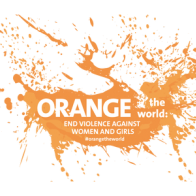25 November is the international day for the Elimination of Violence against women. The statistics are striking:
• 1 in 3 women worldwide have experienced physical or sexual violence- mostly by an intimate partner.
• 4.5 million Individuals are victims of forced sexual exploitation, 98% of them are girls and women,
• In the EU, 45%-55% of women have experienced sexual harassment since the age of 15
• 700 million women alive today have married before 18- more than one third before 15
• 133 million girls and women alive today have undergone FGM (female Genital Mutilation)
Source:
http://www.unwomen.org/en/digital-library/multimedia/2015/11/infographic...
This year the theme of the day is ‘
prevention’. From 25 November through 10 December, Human Rights Day, there will be a 16 Day of Activism against
Gender-Based Violence. This year, the UN Secretary-General’s UNiTE to End Violence against Women campaign invites all of us to “
Orange the world,” using the colour designated by the UNiTE campaign to symbolize a brighter future without violence.
The IBE-UNESCO will sustain its efforts to promote equity and inclusion in education with an accent on gender. Specific initiatives include the STEM for girls in Africa and Asia and the application of Education Systems Quality Analysis Framework (ESQAF) to promote equity of education quality and learning for ALL. These efforts are pursued in recognition that quality education is among key mechanisms for empowering girls and women out of multiple dependencies that often subject them to diverse forms of violence.
